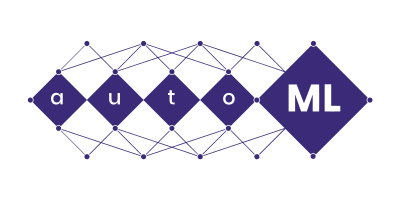Date: 09.09.2024, 15:30-17:00
Room: Auditorium
Speakers
Motivation
LLMs are not only transforming traditional AutoML approaches but also inspiring new applications like large pretrained models for time series forecasting. Moreover, researchers are looking to LLMs compose intelligent ‘agents’ capable of solving machine learning, and more broadly data science, tasks.
AutoGluon has been at the forefront of AutoML for over three years . The library has been consistently improving performance in tabular, multimodal, and time series forecasting problems, inspired by competitive machine learning solutions on platforms like Kaggle. Apart from building powerful machine learning solutions with LLMs and VLMs, the AutoGluon team has been focusing on new approaches enabled by large models.
In this tutorial, we aim to both equip participants with the skills to use AutoGluon for machine learning tasks and to demonstrate how recent developments in ML are changing AutoML. The tutorial will start with an overview of AutoGluon. We will then dive into key design decisions behind AutoGluon-Tabular and AutoGluon-TimeSeries, in addition to providing usage examples. Next, we will discuss how large language model architectures are inspiring new applications in time series forecasting. We will provide a unifying overview of pretrained time series models, and introduce Chronos ( Ansari et al., 2024), the AutoGluon team’s pretrained time series model. Finally, we will review autonomous data science agents powered by LLMs, capable of solving competitive ML problems end-to-end. We will discuss how these innovations are reshaping AutoML and enabling automated data science, and introduce the current approaches being explored by the AutoGluon team.
Outline
- AutoGluon Overview
(a) AutoGluon-Tabular
(b) AutoGluon-TimeSeries - Forecasting with Pretrained Time Series Models
(a) Overview of pretrained time series models
(b) Chronos: Learning the Language of Time Series
(c) Future directions - Towards AutoML in Zero Lines of Code
(a) Overview of recent developments in ML agents
(b) AutoGluon-Assistant: An autonomous competitive ML Agent
Speakers
Caner Turkmen
Caner Turkmen is a Senior Applied Scientist at Amazon Web Services, focusing on time series forecasting and AutoML. Before joining AWS, he worked as a data scientist in numerous management consulting firms and completed a PhD in machine learning at Bogazici University, Turkey. At AWS, he worked on multiple science teams before joining the AutoGluon team in 2022 and launching AutoGluon-TimeSeries. Caner previously gave invited talks and tutorials at the International Symposium on Forecasting and PyData Berlin 2023. His published works have appeared in AISTATS, AutoML Conference, IJCAI, JMLR, NeurIPS, among others.
Oleksandr Shchur
Oleksandr Shchur is an Applied Scientist at Amazon Web Services, where he works on time series forecasting in AutoGluon. Before joining AWS, he completed a PhD in Machine Learning at the Technical University of Munich, Germany, doing research on probabilistic models for event data. His research interests include machine learning for temporal data and generative modeling. Oleksandr is the lead developer of AutoGluon-TimeSeries and has given an invited talk on AutoGluon at PyData Berlin 2023. He has published papers at ICLR, ICML, IJCAI, and NeurIPS.
Nick Erickson
Nick Erickson is a Senior Applied Scientist at Amazon AI. He obtained his master’s degree in Computer Science and Engineering from the University of Minnesota Twin Cities. He is the author and lead developer of the open-source AutoML framework AutoGluon. Starting as a personal competition ML toolkit in 2018, Nick continually expanded the capabilities of AutoGluon and joined Amazon AI in 2019 to open-source the project and work full time on advancing the state-of-the-art in AutoML. Nick has given invited talks and tutorials on AutoGluon at ICML AutoML Workshop 2020 (Keynote), KDD 2020,ICML AutoML Workshop 2021, KDD 2022, AutoML 2022 (Keynote), AutoML Fall School 2022, NeurIPS 2022, PyData Seattle 2023, AutoML 2023, NeurIPS 2023. He has published papers on the topic of AutoML at ICML, NeurIPS, AutoML Conference, and JMLR.

